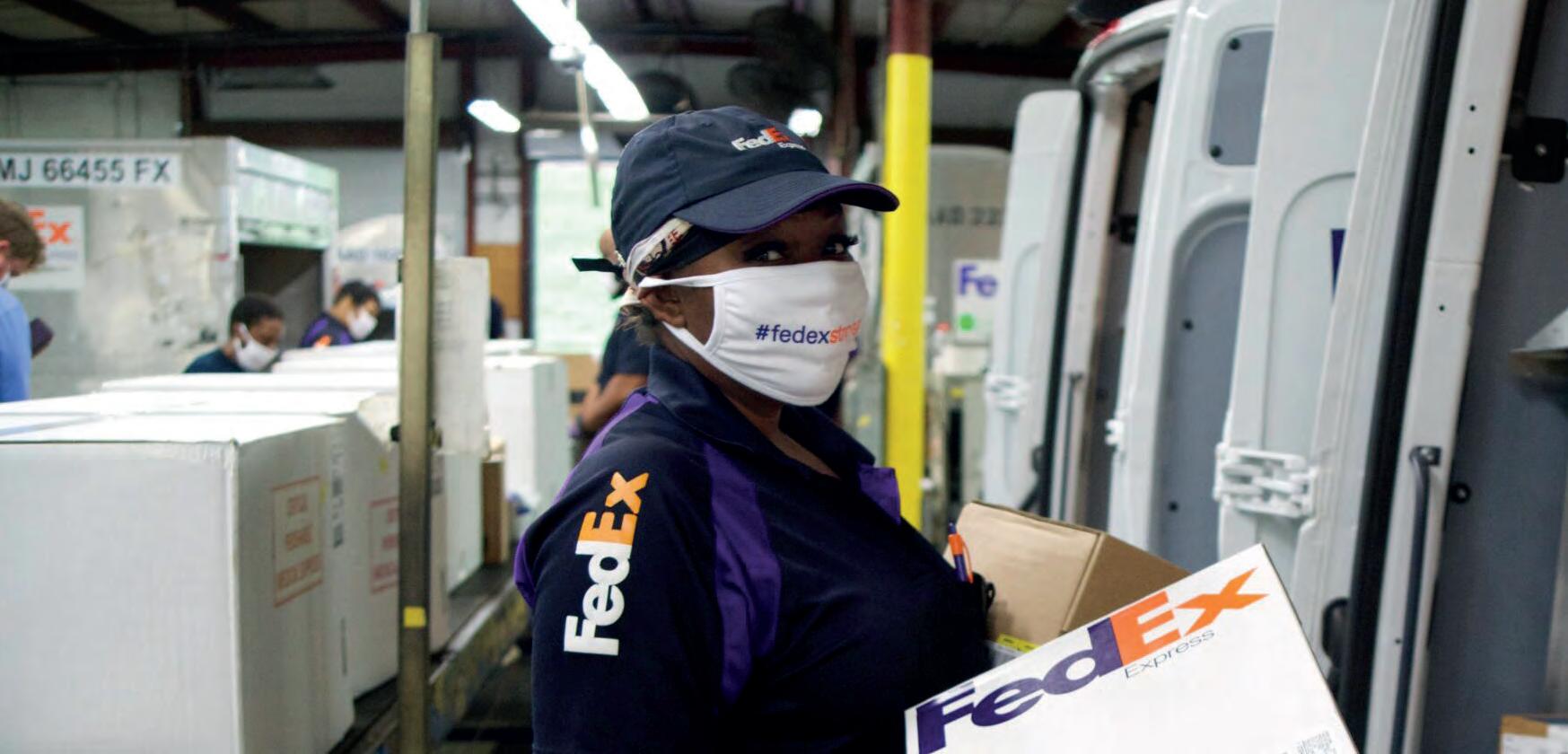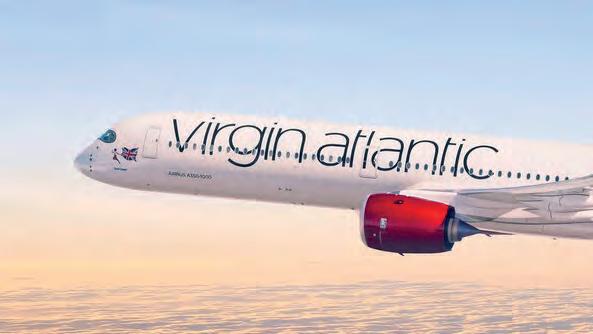
3 minute read
FEDEX FUELS SUSTAINABILITY IN ITS NETWORK
FedEx has introduced an innovative business solution, FedEx Sustainability Insights, which leverages the extensive network scan data from its global logistics operations to enhance customers’ access to emissions information. It has been initially launched in the United States. Powered by the technology of FedEx Dataworks, this cloud-based engine utilises near-real-time data from the FedEx network to estimate carbon dioxide equivalent (CO2e) emissions for individual tracking numbers and FedEx.com accounts. Users can conveniently view their historical emissions data by account or search by tracking number, all accessible through their free FedEx.com login. The tool presents data in various metrics, including transport mode, service type and country or territory, covering eligible FedEx Express, FedEx Ground and FedEx Freight shipments.
The introduction of FedEx Sustainability Insights not only provides customers with valuable emissions data but also establishes the groundwork for a new suite of tools tailored to e-commerce customers. By utilising an application programming interface (API), customers can seamlessly transfer their historical and predictive emissions data to their internal systems. This API incorporates machine learning capabilities to assist customers in managing their supply chain, enhancing operational compliance and integrating emissions estimates into their customers’ shopping experience, such as displaying emissions information in the shopping cart.
Advertisement
These new offerings align with FedEx’s commitment to reducing emissions in its global operations and its goal of achieving carbon-neutral operations worldwide by 2040. By leveraging data-backed predictive insights and modelling, FedEx Sustainability Insights will support the company’s efforts to optimise operations and identify opportunities for network efficiency.
In pursuit of its carbon-neutral operations goal by 2040, FedEx is prioritising key areas such as the electrification of pickup and delivery vehicles across its global fleet, the implementation of more efficient facilities, fuels and fleets and investments in natural carbon capture technologies. These initiatives further underscore FedEx’s dedication to sustainability and its commitment to reducing its environmental impact while providing logistical services to customers.
“We’ve heard from our shippers that they need more data on their shipping footprint as consumers increasingly weigh sustainability as a factor in purchasing decisions,” said executive vice president and chief customer officer, Brie Carere. “Through innovations like FedEx Sustainability Insights, FedEx is empowering customers to access the information they need as part of our mutual pursuit of a more sustainable future.”
Greenhouse gas emissions
The aviation industry, including the airfreight supply chain, is experiencing rapid growth, leading to a significant increase in greenhouse gas emissions. To address this issue, the European Union (EU) is taking proactive measures to reduce aviation emissions within Europe and collaborating with the international community to develop global solutions.
On July 14, 2021, the European Commission adopted a set of legislative proposals outlining its strategy to achieve climate neutrality in the EU by 2050. These proposals include an intermediate target of at least a 55% net reduction in greenhouse gas emissions by 2030. The package suggests revising several EU climate regulations, such as the EU Emissions Trading System (ETS), Effort Sharing Regulation and transport and land use legislation. These revisions provide concrete steps for the Commission to meet EU climate targets outlined in the European Green Deal.
In addition to carbon dioxide (CO2), aviation has other climate impacts resulting from the release of nitrogen oxides, water vapour, sulphate particles and soot particles at high altitudes. These non-CO2 emissions can have a significant effect on the climate. To address this, the European Aviation Safety Agency (EASA) conducted a study in November 2020, fulfilling the requirement of the EU Emissions Trading System Directive. The study examined the non-CO2 effects of aviation on climate change, highlighting the importance of considering these combined impacts alongside CO2 emissions.
The EU’s efforts to mitigate aviation emissions reflect its commitment to combat climate change and promote sustainability. By implementing targeted regulations and working collaboratively with global partners, the EU aims to reduce the environmental impact of aviation while ensuring the industry’s continued growth and development.
Sustainable Aviation Fuel certificate
Another operation that embraces emission reduction is Virgin Atlantic Cargo. It has introduced the Sustainable Aviation Fuel certificate (SAFc) programme, aimed at assisting freight forwarders and shippers in managing their carbon emissions while demonstrating a collective commitment to the growth of the Sustainable Aviation Fuel (SAF) industry.
Participants in this programme will contribute to the airline’s procurement of SAF and, in return, receive a SAF certificate representing the associated reductions in scope 3 emissions. Moreover, customers will gain valuable insights into their airfreight emissions within scope 3 through Virgin Atlantic Cargo’s airfreight carbon calculator, which has been internally developed and independently verified. This calculator utilises an industry-recognised methodology and actual flight emissions data from Virgin Atlantic Cargo to provide participating customers with powerful information that enables them to take proactive mea-










